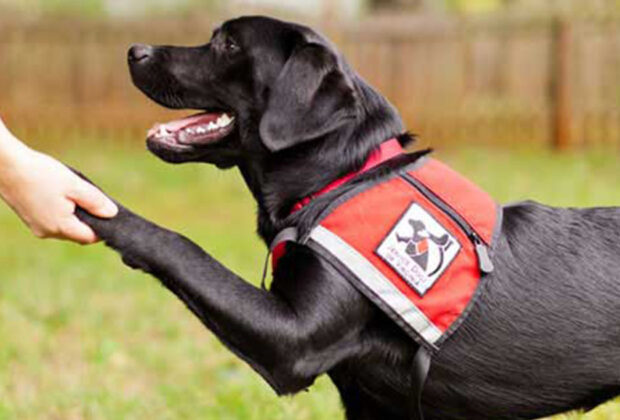Dogs hold a special place in our hearts as cherished companions, but for some, their significance transcends mere companionship. Service dogs step into remarkable roles, providing invaluable assistance to individuals with disabilities, profoundly impacting their lives. Let's delve into the diverse roles of these highly trained canines and the profound ways they enhance the lives of their human partners.
Service dogs fulfil various roles, each meticulously crafted to address specific needs:
Guide Dogs:
These dogs assist individuals who are visually impaired, guiding them safely through their surroundings and aiding in navigating obstacles.
Hearing Dogs:
Trained to assist the deaf or hard of hearing, these dogs alert their handlers to important sounds, enhancing their awareness of the environment.
Mobility Assistance Dogs:
Offering support to those with mobility impairments, these dogs aid in tasks such as retrieving items, opening doors, and providing balance assistance.
Medical Alert Dogs:
These remarkable canines detect specific medical conditions like seizures, diabetes, or allergies, providing timely warnings and assistance in emergencies.
Psychiatric Service Dogs:
Providing invaluable support to individuals with mental health conditions, these dogs offer emotional comfort, security, and aid in managing anxiety or PTSD.
Autism Assistance Dogs:
Offering a calming presence and aiding in social interaction, these dogs provide comfort and support to individuals with autism.
The Impact on Handlers:
Service dogs serve as more than just helpers; they become lifelines for their handlers, enriching their lives in profound ways:
Enhanced Independence:
By assisting with daily tasks, service dogs empower their handlers to lead more independent lives, fostering a sense of self-sufficiency and dignity.
Improved Safety:
Medical alert dogs can be lifesavers for individuals prone to medical emergencies, providing timely warnings and necessary assistance.
Emotional Support:
The bond between a service dog and their handler is deeply meaningful, offering emotional support, reducing stress, and providing constant companionship.
Social Interaction:
Service dogs act as social facilitators, helping individuals overcome social barriers and fostering meaningful connections with others.
The Training and Commitment:
Becoming a service dog requires rigorous training and dedication. These dogs undergo extensive programs to master not only specific tasks but also the ability to remain calm and focused in diverse environments. The organisations responsible for training invest considerable time and resources to ensure these dogs are well-prepared for their vital roles.
Service dogs are more than just helpers; they are indispensable companions and lifelines for individuals with disabilities. As we celebrate the remarkable bonds between humans and their service dogs, it's essential to recognize the dedication and hard work invested in training these extraordinary animals. They truly embody the spirit of companionship and service, enriching the lives of their handlers in immeasurable ways. Interested in learning more about service dogs? Feel free to reach out and start a conversation with Next Level Dog Training to enquire about Assistance Dog Training.














